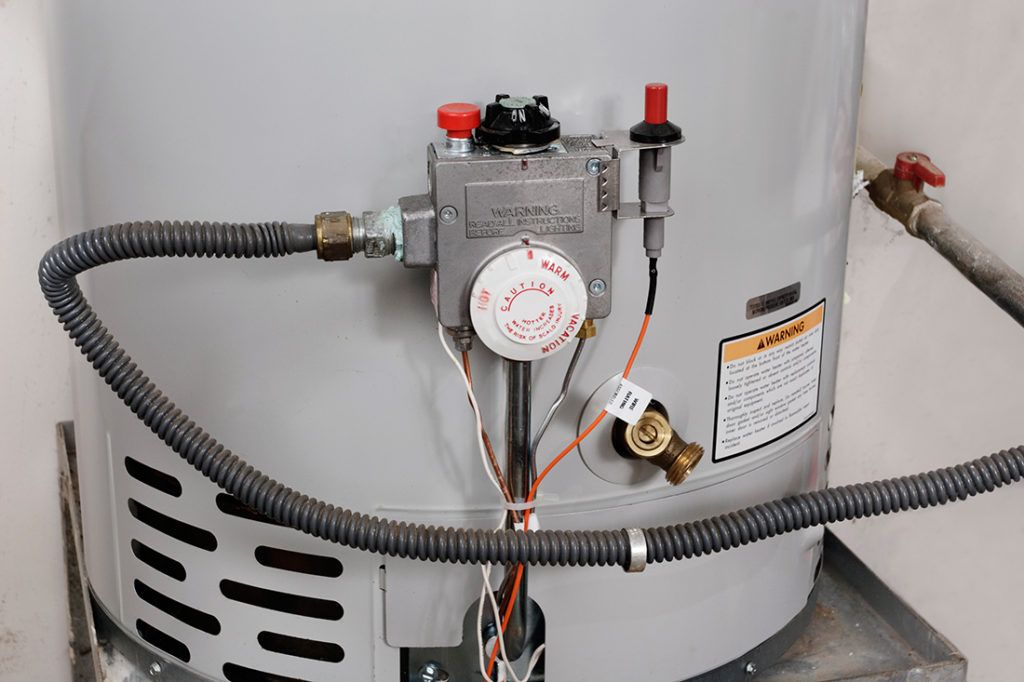Robinson & Son Plumbing & Mechanical Offers Hot Water Tanks
Are you ready to upgrade your hot water tank? Robinson & Son Plumbing & Mechanical is here this month to provide some insight on how to choose the best hot water tank for your home. You might not pay much mind to your water heater. As long as you have hot water coming from the spigot, you’re happy. And sometimes, that’s okay! However, we urge you to consider the savings with a new, more efficient hot water tank.
When choosing a new water heater, there are some things to consider. Energy.gov mentions fuel type, size, efficiency, and cost as the top four things to think about. We’re going to break down these considerations while focusing on both conventional and tankless models.
Conventional Hot Water Tanks and Their Benefits
Conventional hot water tanks are probably what come to mind when you think of one. They are storage tanks that heat the water and then dispense it whenever necessary. In most cases, a conventional hot water tank will run on gas or electricity and holds from 20 to 80 gallons of water. The size you choose will depend on the size of your household. Adding 10 gallons per person is a good indication of how much hot water each person may use daily. So, a family of four would benefit from 40 gallons, give or take.
Be sure not to purchase a tank that is too large. While it may seem like a good idea and you might want to feel more prepared, it can cost you more in the long run. Water that you do not use is considered “standby heat loss,” which will sit and continue to use energy to stay warm.
One thing that homeowners have to consider is the fuel source. Hot water tanks can run on natural gas, propane, oil, or electric, which will add additional costs. Depending on what your current water tank uses or what you have available, this can determine what model you can pick.
Are There Benefits to Tankless Models?
If you’re looking to make the switch from conventional to tankless, our plumbers can help. Tankless models are known as “on-demand” water heaters, meaning that they do not store the water. They will provide hot water to you whenever you need it, cutting down the standby heat loss we mentioned earlier. Tankless water heaters can provide up to five gallons per minute, but they may not be ideal for large households.
Tankless water heaters usually run by gas or electricity, which can pose as an initial problem for conventional tank users. The plumber will need to retrofit the wires and plumbing system, which may seem like a pretty penny up front. However, the savings later will make up for it.
Signs You Need a New Hot Water Tank
Consumer Reports states that 20 percent of your household budget comes from the water heater. If you have an older water heater that doesn’t seem to run like it used to, there are a few signs that can help you determine whether it’s time to make a switch. These can include, but are not limited to:
- Leaks or puddles around the tank
- Rusty water comes from the spigot
- Loud, strange noises come from the unit
- The hot water tank is more than 10 years old
Have you noticed any of these potential problems? Just ask our plumbers for some recommendations on what model will work best for your household. If you have a newer model and you’re noticing some of these problems, we can help there, too. Our experienced team can also provide water heater repair.
Additional Ways to Save On Water Heater Costs
Now that you have a new water heater, be sure to capitalize on additional savings. The Spruce offers a few suggestions, including:
Keeping the thermostat low. This will help your water heater not to run as hard and stay as hot. A temperature of 120 degrees or less usually works for most households.
Fixing leaks. Leaking faucets, pipes, and the tank itself will cause your water heater to not only run, but will affect water bills overall.
Using a timer. Setting a timer on the hot water tank will give it a break from always being “on.” Programing the timer to be off while you’re at work or sleeping will be a great way to cut down on costs.
Replacing fixtures. Using low-flow showerheads and faucets will help to not use large amounts of water, saving your hot water and cutting down on use simultaneously.
While these suggestions may not work for everyone, cutting down on hot water use will help you to get the most of your new hot water tank.
Count on Our Plumbers for Quality Hot Water Tank Service
Are you still not sure about switching up your water heater? We hope that you will consider these benefits of upgrading to a more efficient model. When the time comes, call on the plumbers at Robinson & Son Plumbing & Mechanical. We are here for hot water tank installation, repair, and more!
Give Robinson & Son Plumbing & Mechanical a call at (304) 757-8063 to schedule service or for an estimate. Follow us on Facebook for updates! We will be happy to give you more information on hot water tanks.

